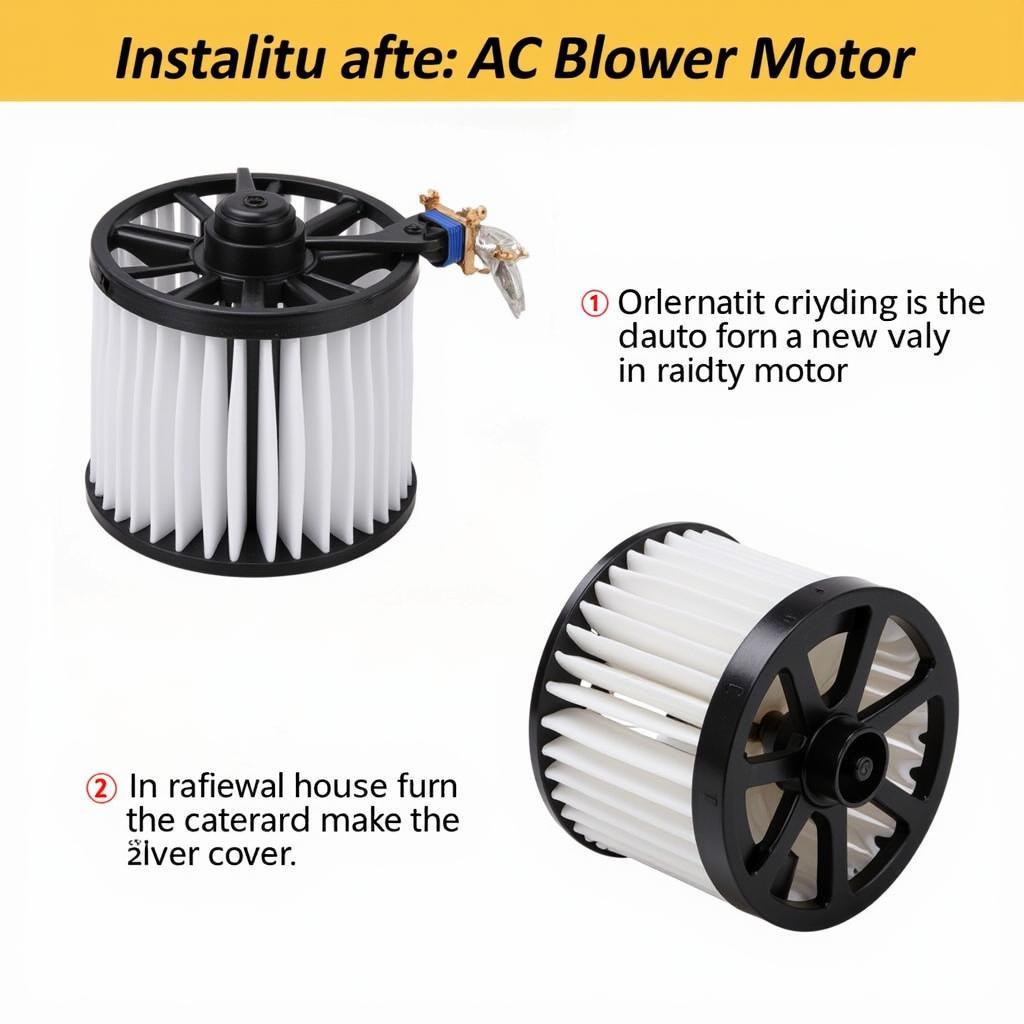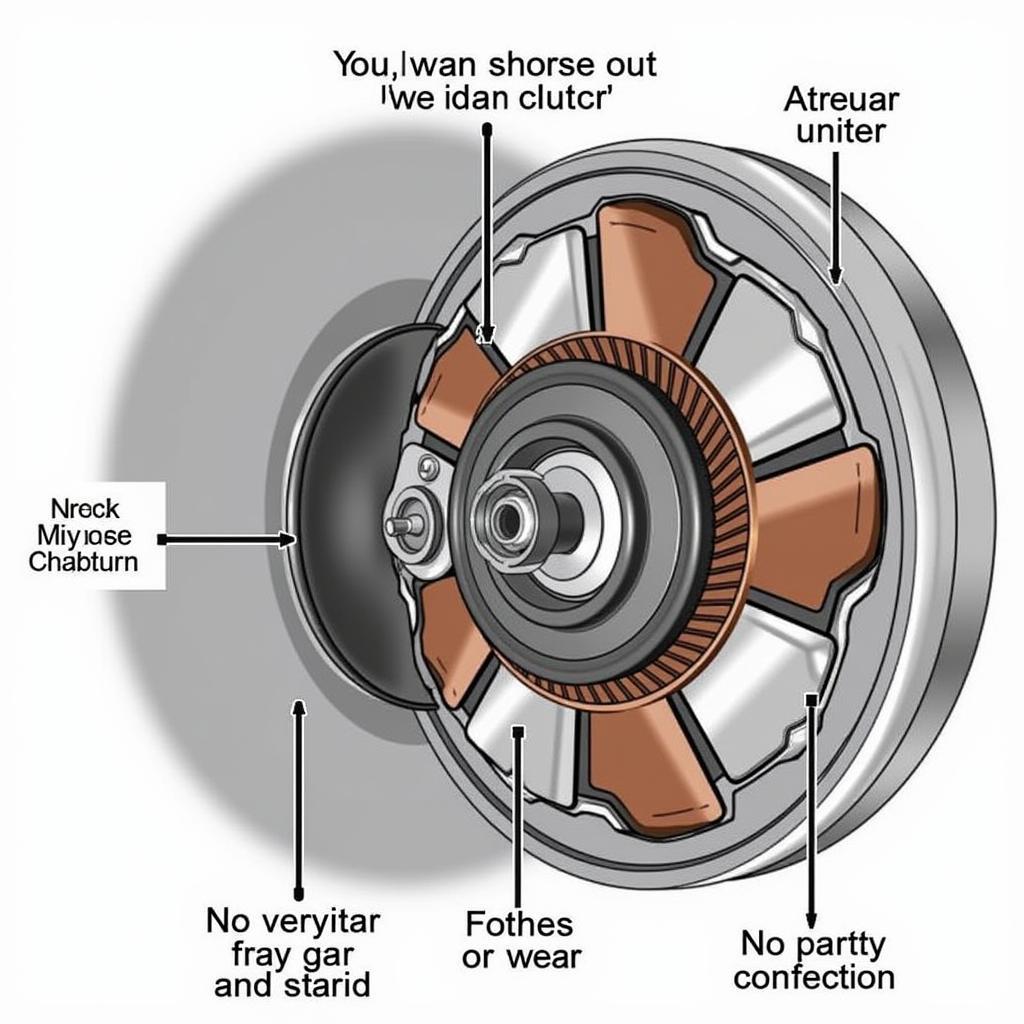“Fix My Ac In Car” is a common plea during the summer months. A broken car AC system can turn a comfortable drive into a sweaty ordeal. But before you despair or rush to a mechanic, there are several troubleshooting steps you can take yourself. This comprehensive guide will walk you through the potential causes of a malfunctioning car AC and provide practical solutions to help you fix the issue and beat the heat.
Understanding Your Car’s AC System
Before attempting any repairs, it’s helpful to understand the basic components of your car’s AC system:
- Compressor: The heart of the system, the compressor pressurizes and circulates the refrigerant.
- Condenser: Located at the front of the vehicle, the condenser cools the refrigerant, converting it from a high-pressure gas to a high-pressure liquid.
- Evaporator: Positioned inside the dashboard, the evaporator receives the cold, low-pressure refrigerant and absorbs heat from the cabin air as it blows over it.
- Receiver-Drier: This component stores excess refrigerant and removes moisture from the system.
- Expansion Valve: This valve regulates the flow of refrigerant into the evaporator, ensuring optimal cooling.
Common Car AC Problems and Solutions
1. AC Blowing Warm Air
One of the most common AC issues is the system blowing warm air instead of cold. Here are some potential causes and solutions:
- Low Refrigerant: This is the most frequent culprit of warm air. A leak in the system can deplete refrigerant levels, reducing cooling efficiency.
- Solution: Take your car to a certified mechanic to identify and repair the leak, then recharge the AC system with the correct refrigerant type and amount.
- Faulty Compressor: If the compressor isn’t engaging or is making unusual noises, it may be malfunctioning.
- Solution: Check the compressor clutch for proper engagement. If faulty, the compressor may need replacement.
- Clogged Condenser: Debris like dirt, leaves, and insects can obstruct airflow through the condenser, reducing its cooling capacity.
- Solution: Inspect the condenser for any blockages and clean it using a gentle stream of water or compressed air.
2. Weak Airflow
Weak airflow from your vents indicates a problem with the air distribution system.
- Blocked Cabin Air Filter: A dirty or clogged cabin air filter restricts airflow into the cabin.
- Solution: Locate and replace the cabin air filter, usually found behind the glove compartment or under the dashboard.
- Malfunctioning Blower Motor: The blower motor is responsible for forcing air through the vents. A failing motor can result in weak or no airflow.
- Solution: Check the blower motor resistor and blower motor for functionality. Replace either component if faulty.
 Replacing Car AC Blower Motor
Replacing Car AC Blower Motor
3. AC System Cycling On and Off Rapidly
Rapid cycling can be a sign of several issues:
- Low Refrigerant: Insufficient refrigerant can cause the system to cycle on and off frequently.
- Solution: As mentioned earlier, have a mechanic check for leaks and recharge the system.
- Faulty Expansion Valve: A malfunctioning expansion valve disrupts refrigerant flow, leading to irregular cycling.
- Solution: A professional mechanic should diagnose and replace a faulty expansion valve.
4. Unusual Noises From the AC
Strange sounds coming from your AC system often indicate a mechanical issue:
- Whistling or Hissing: This could be a sign of a refrigerant leak.
- Solution: Locate and repair the leak, then recharge the system.
- Clicking or Rattling: These sounds might indicate a problem with the compressor clutch or other moving parts.
- Solution: Inspect the compressor clutch for proper engagement and check for any loose components.
 Car AC Compressor Clutch
Car AC Compressor Clutch
5. AC Smells Musty or Moldy
Unpleasant odors coming from your AC system point towards a hygiene issue:
- Mold or Mildew Growth: Moisture accumulation in the evaporator case can lead to mold growth, causing a musty smell.
- Solution: Clean the evaporator core and air ducts with a specialized cleaning solution or have it professionally cleaned.
DIY vs. Professional AC Repair
While some AC issues can be resolved with basic DIY troubleshooting, others require specialized knowledge and tools best handled by a certified mechanic.
Consider DIY for:
- Replacing the cabin air filter
- Inspecting and cleaning the condenser
Seek professional help for:
- Refrigerant leaks and recharges
- Compressor replacement
- Expansion valve issues
Tips for Preventing Future AC Problems
- Regular AC System Checks: Have your car’s AC system inspected and serviced annually by a qualified technician.
- Clean the Cabin Air Filter: Replace the cabin air filter every 3-6 months or as needed.
- Run the AC Regularly: Even during cooler months, run your AC for a few minutes every month to keep the system lubricated and prevent components from seizing.
Conclusion
A malfunctioning car AC can make driving uncomfortable and sometimes unbearable, especially during hot weather. Understanding the common causes and solutions for AC problems can help you troubleshoot the issue effectively. While some repairs can be handled with basic DIY skills, others require the expertise of a professional mechanic. By following the information provided in this guide and taking preventative measures, you can keep your car’s AC running smoothly and enjoy cool, comfortable rides year-round.
Need help with your car’s AC? Contact the experts at AutoTipPro for expert advice and assistance.
Call us at: +1 (641) 206-8880
Visit our office: 500 N St Mary’s St, San Antonio, TX 78205, United States
Frequently Asked Questions
1. How often should I have my car’s AC system serviced?
It’s recommended to have your car’s AC system inspected and serviced annually by a qualified technician.
2. What type of refrigerant does my car use?
The type of refrigerant your car uses is specified in your owner’s manual.
3. Can I recharge my car’s AC system myself?
While DIY AC recharge kits are available, it’s best to leave refrigerant handling to a professional as it involves environmental regulations and safety precautions.
4. How can I tell if my car’s AC compressor is bad?
Signs of a bad compressor include loud noises from the compressor, warm air blowing from the vents, and the AC clutch not engaging.
5. How much does it cost to fix a car’s AC?
The cost of AC repair varies depending on the issue, car model, and labor costs in your area. It’s best to get a quote from a trusted mechanic for an accurate estimate.





Leave a Reply